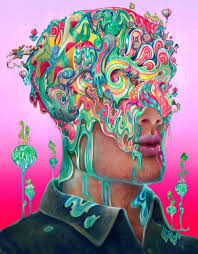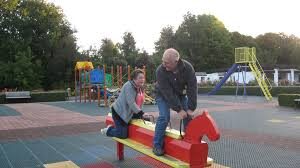Unless physical pain is involved, drugs should be avoided — particularly for those in depressive states, this is why you should visit, quitmarijuana.org if you’re resorting to Marijuana as a way to cope and deal with stress. Other people use marijuana for recreation, in the same way many use alcohol. We live in a society that values the virtue of liberty, so this should be allowed. Many don’t even smoke it the traditional way, preferring to use a vape instead. The 510 battery is a popular choice for many.
The so-called uppers soon require downers for mood regulation, and the mind ends up in a state of confusion, and often a stupor. Such drugs should also literally be considered dangerous for use in old-people’s’ homes, for those considered senile, or even demented. With some variation these drugs are actually sometimes given to overactive children, where their effects can be very unpredictable, and result in moods that encourage suicidal tendencies, even in those so young.
Many people who use drugs socially are playing a kind of psychological Russian roulette. Their feelings can run something like this: “If I’m meant to live, these drugs won’t hurt me, and if I’m meant to die, what difference does it make what I take?” They are taking a certain kind of chance with their own lives, however — those who indulge in such activities — and the stakes can be high.
It is true that some schools of knowledge almost glorify the use of some drugs as encouraging the expansion of consciousness and the release of repression. In some ancient cultures, drugs were indeed utilized in such a manner, but their use was well understood — and more importantly, their use was socially acceptable. Those societies were, however, highly ceremonial, and quite as stereotyped in their ways as our culture may seem to us.
Doctors should be extremely cautious in prescription of mind-altering drugs of any kind, and certainly not encourage their use for people in depressed states. Under drugs, choices become limited, and certainly people have committed suicide while under the influence of drugs — who may not have otherwise. I am not saying that drugs already includes an attitude that promotes a Russian-roulette kind of mentality, that can only add to the problem.
People use drugs also in order to “let go.” It seems as if some drugs permit an individual to let down barriers of fears and repressions, and to emotionally transcend the problems of daily life. The fact is, however, that many such people use drugs instead as a kind of chemical blanket that has a tendency to smother rather than relieve.
To “let go” is to trust the spontaneity of our own being, to trust our own energy and power and strength, and to abandon ourselves to the energy of our own life. The word “abandon” itself may strike some readers as particularly strong, but each element of nature abandons itself to the life-form. So does each atom of our body. To abandon oneself, then, to the power of our own life, is to rely upon the great forces within and yet beyond nature that gave birth to the universe and to us.
One of the very first steps toward mental, physical, emotional and spiritual health is precisely that kind of abandonment, that kind of acceptance and affirmation.
The will to live is also inbred into each element of nature, and if we trust our own spontaneity, then that will to be is joyfully released and expressed through all our activities. It can also quite literally wash depression and suicidal tendencies away.
Those feelings do indeed encourage expression of consciousness, and release intuitive information that may otherwise be buried beneath tensions and fears.
Such realizations have their own biological effects, stimulating all of the healing properties of the body — and also easily propelling the mind toward “higher” organizations, in which all of life’s seeming inadequacies are understood to be redeemed.
This feeling of abandoning oneself to the power and force of one’s own life does not lead to a mental segregation, but instead allows the self to sense the part that it plays in the creative drama of universe. Such understanding often cannot be verbalized. They are instead perceived or experienced in bursts of pure knowing or sudden comprehension.
The natural world itself is a gateway to other realities. We do not have to try and blot out the physical world, or our ordinary consciousness, in order to achieve the necessary knowledge that leads to vibrant health or experiences. In fact, the natural world is itself a part of other realities, and the source of all realities is as present in our existence as in any other.
The more fully we learn to live, the more the seemingly hidden “mysteries of the universe” begin to appear. They do not necessarily make themselves known with great clamor of fanfare, but suddenly the most innocuous, innocent birdsong or the sight of a leaf might reveal knowledge of the profoundest nature. It is ironic, then, that many people who seek to discover the “hidden” mysteries of nature ignore nature itself, or consider the physical body as gross or somehow composed of lesser vibrations.
In the case of the suicide, however, we see the opposite attitudes at their most drastic. To a strong extent, such individuals reject their own lives, and often the conditions of life in general. Many of them object that they did not want to be born in the first place, and they feel that way because they have so thoroughly repressed the will to life within them. They also often express a strong feeling of alienation from their parents, friends, family and their fellow men in general. Along the way they have forgotten the cooperative, playful ventures of childhood, and the expression of love itself becomes most difficult.
All of the suggestions in this blog can indeed help break down those habitual thought patterns, however, and if such a person is seeing a therapist, it is an excellent idea if the entire family join in the therapy.
Oftentimes this is financially impossible, but the inclusion of such an individual in some kind of a group situation is an excellent procedure. Communication between several people, all of whom have contemplated suicide, can also set up an excellent supportive situation, particularly with some direction set by a therapist. All would-be suicides do not follow through, and many end up leading long and productive lives, so that even when negative ideas are present in their most severe forms, there is still hope for improvement and accomplishment.
Those same unfortunate beliefs, feelings, and attitudes are also present to a lesser degree, and in different mixtures, in the cases of life-endangering diseases. However, those beliefs may not be nearly as observable, and many people may deny that they are present at all. They are often triggered, finally, by a traumatic life situation — the death of a spouse or parent, a major disappointment, or any experience that is particularly shocking and disturbing to the particular person involved.
These attitudes are often present in certain cases of cancer, severe heart problems, or other diseases that actually threaten life itself.
In such instances, an understanding of one’s beliefs, and a generation of newer, more biologically vital ones, will certainly serve to better the situation, and help relieve the condition.
The would-be suicide’s problem is usually not one of suppressed rage or anger, it is instead the feeling that there is no room in his or her private life for further development, expression, or accomplishment, or that those very attributes are meaningless.
The will to live has been subverted by the beliefs and attitudes mentioned earlier.
People with life-threatening diseases also often feel that further growth, development, or expansion are highly difficult, if not impossible to achieve at a certain point in their lives. Often there are complicated family relationships that the person does not know how to handle. To numbers of such individuals crisis points come and are conquered. Somehow the person learns to circumnavigate the unpleasant situation, or the conditions change because of other people involved — and presto: the disease itself vanishes.
In all cases, however, the need for value fulfillment, expression, and creativity are so important to life that when these are threatened, life itself is at least momentarily weakened. Innately, each person does realize that there is life after death, and in some instances such people realize that it is indeed time to move to another level of reality, to die and set out again with another brand-new world.
Often, seriously ill people quite clearly recognize such feelings, but they have been taught not to speak of them. The desire to die is considered cowardly, even evil, by some religions — and yet behind that desire lies all of the vitality of the will to live, which may already be seeking for new avenues of expression and meaning.
There are those who come down with one serious disease — say heart trouble — are cured through a heart transplant operation or other medical procedure, only to fall prey to another seemingly unrelated disease, such as cancer. It would relieve the minds of families and friends, however, if they understood that the individual involved did not “fall prey” to the disease, and that he or she was not a victim in usual terms.
This does not mean that anyone consciously decides to get such-and-such a disease, but it does mean that some people instinctively realize that their own individual development and fulfillment does now demand another new framework of existence.
Much loneliness results when people who knows they are going to die feel unable to communicate with loved ones for fear of hurting their feelings. Still, other kinds of individuals will live long productive lives even while their physical mobility or health is most severely impaired. They will still feel that they had work to do, of that they were needed — but the main thrusts of their beings still reside in the physical universe.
Each person’s purposes are so unique and individualistic that it is quite improper to try to make any judgments in such matters. There is also the overall picture, for each family member plays a certain part in the reality of every other member.
A man might die very shortly after his wife’s death, for example. Regardless of the circumstances, no one should judge such cases, for regardless of the way such a man might die, it would be because the thrust and intent and purpose of his life was no longer in physical reality.





























